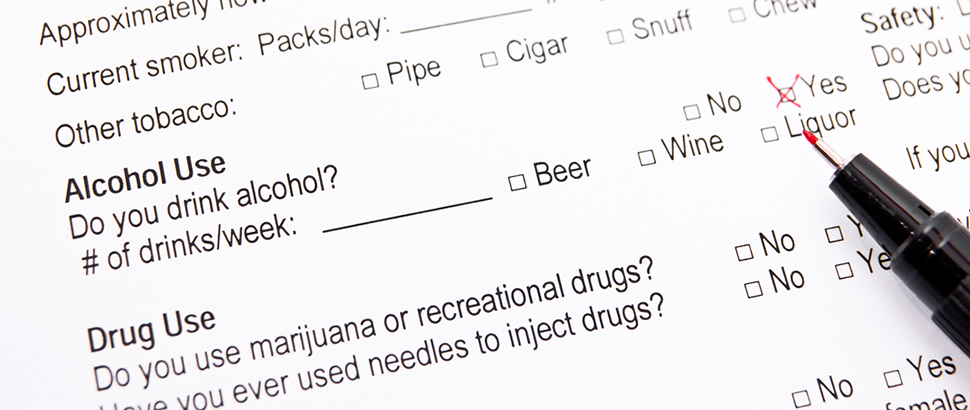Do You Have a Problem?
1. Alcoholics Anonymous - list of warning signs:
Do you find yourself doing any of the following?
- Intending to only have a couple of drinks but ending up drunk again
- Intending to stop for a week but giving in after 2 or 3 days
- Telling yourself you can stop drinking at any time if you really need to
- Changing from beer to wine to try to drink less
- Lying about the amount you drink
- Keeping a drinking diary but not recording honestly
- Sneaking extra drinks up at the bar or in the kitchen when no-one’s looking
- Hiding bottles round the home or in the car
- Family members commenting on your drinking
- Breaking promises
- Friends stop inviting you to dinner
- Feeling guilty about the amount you drink
- Missing appointments or important interviews due to hangovers when fully intending not to get drunk the night before
- Taking days off work because of drinking
- Becoming isolated, feeling alone, despair & self-hatred
- Being disorganised, late or receiving comments at work about performance
- Paying less attention to personal appearance
- Not remembering what you have done after a few drinks the night before
- Needing more to get drunk than previously
- Not getting the same euphoric effect any more
Alarm bells should ring if the honest answer to these statements is ‘yes’ more often than ‘no’. These questions & statements can apply to any drug (s) use, not just alcohol. (with permission from AA webmaster).
2. Screening questions Adapted from DSM IV published in 2000
These screening questions concern the past 12 months and are just the starting point prior more in depth assessment. The questions can be used for any substance – alcohol is used here
- Do you find you need more alcohol to get the desired effect or that the same amount has had less of an effect?
- Do you feel sick, unwell or just uncomfortable when the effects of alcoholwear off or do you drink more or take another substanceeither to avoid feeling unwell (or just to feel generally better again)?
- Do you drink larger amounts or for a longer period of time than you intend?
- Do you have a persistent or strong desire to drink?
- Do you spend a lot of time obtaining/using or recovering from the effects of alcohol?
- Do you reduce or give up work, recreational or social ac tivities as a result of your drinking?
- Do you continue to drink despite having physical or psychological problems with it?
Answering 'yes' to three or more of these seven questions you are likely to be dependent on the substance assessed. It's also important to specify whether there are signs of physiological dependence (this means you answered 'yes' to question 1 or 2).
3. Narcotics Anonymous - Am I an Addict?
Click here to download their leaflet
Other commonly used questionnaires include:
CAGE is a four page question assessment tool as a basic indicator as to the need for further action or help.
AUDIT is a ten-question tool developed by the World Health Organisation (WHO) in 1993. Self-assessment questions on p32, scoring p23.
6. Is AA for you?
More questions can be found on the AA website Is AA for you? - a few more questions for those uncertain about having a problem with their drinking.
References:
- Screening questions Adapted from DSM IV published in 2000, 4. Substance-related disorders The American Psychiatric Association: Diagnostic and Statistical Manual of Mental Disorders, Fourth Edition. Washington DC, American Psychiatric Association, 1994. Reprinted with permission from the Diagnostic and Statistical Manual of Mental Disorders, Fourth Edition. Copyright 1994 American Psychiatric Association.
- Saunders J.B., Aasland O.G., Babor, T.F., de la Fuente J.R. and Grant M. Development of the Alcohol Use Disorders Identification Test (AUDIT):WHO collaborative project on early detection of persons with harmful alcohol consumption. I.Addiction 1993; 88:349-362
- Ewing JA.Detecting AlcoholismThe CAGE Questionnaire. JAMA 1984;252:1905-1907

